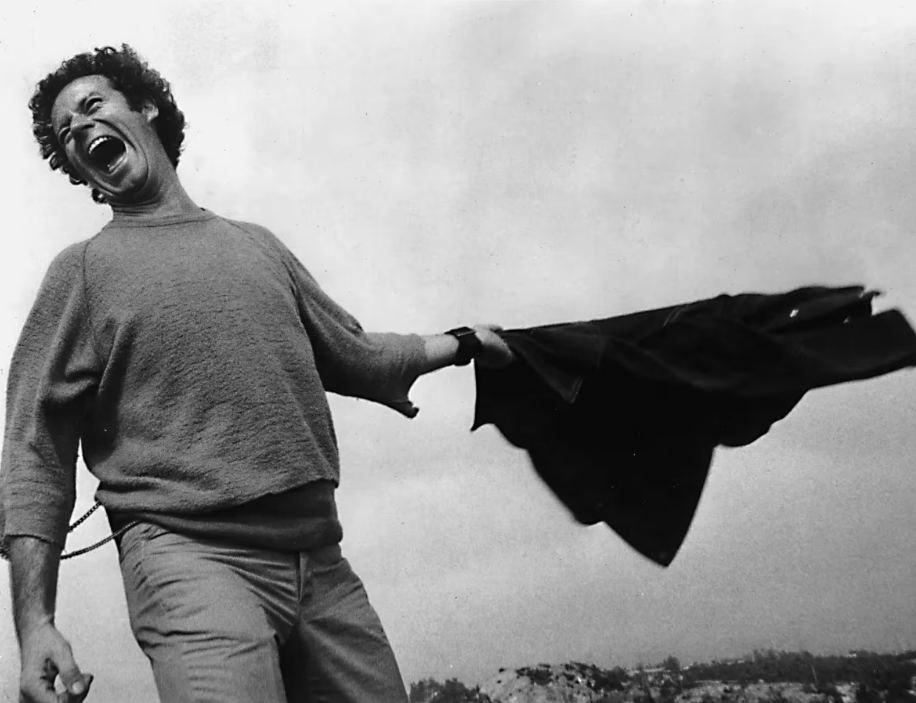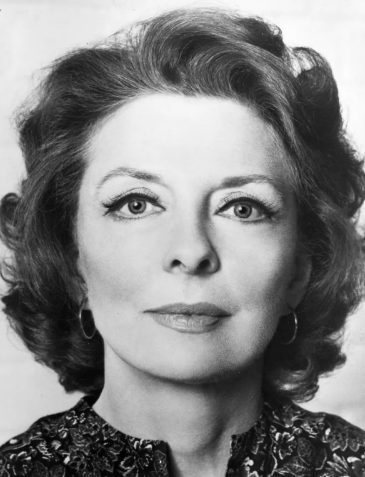Over a decades-long career, he brought ‘men of humour, men of dignity, men of strength and men of compassion’ to life.

Canadian actor Gordon Pinsent is shown in 2012, soon after the release of his memoir Next. FRED LUM/THE GLOBE AND MAIL
At a 2007 ceremony to unveil his star on Canada’s Walk of Fame, actor Gordon Pinsent joked that he would have to duck down side streets now lest he be caught by passersby gazing at his own celebrity. “He’ll be calling himself an icon soon,” he imagined contemptuous pedestrians saying. “We got the Mountie and we got the beaver. Those are the only two icons we need.”
His self-deprecating joke lightly brushed aside the obvious truth that the veteran Newfoundland actor had long been lovingly tucked inside the box labelled National Treasures. From an early role as an idealistic MP to a late one as a heartbroken senior, Pinsent had always held a secure place in Canadian hearts that endured the length of a 60-year career in film, television and theatre.
“He creates men of humour, men of dignity, men of strength and men of compassion,” his late wife, the actress Charmion King, once said of his work. “He doesn’t play arrogance. He doesn’t play stupidity. I think Canadians are like who he portrays. And even if they’re not, they see it and they want to be!”
Mr. Pinsent suffered a brain hemorrhage at home during the night of Friday, Feb. 24 and died at Toronto General Hospital Saturday. He was 92.
He had cheated death in 2013 after difficult surgery for trigeminal neuralgia, a condition that had caused him pain since about 2000 and was one reason he increasingly preferred screen roles over stage roles in his last years. Dropping below 57 kilos, he made a slow recovery but had remained in better health since 2017.
He was predeceased by his parents and seven older siblings, but leaves his children, Barry Kennedy, Beverly Pinsent and Leah Pinsent.
“Gordon passionately loved this country and its people, purpose and culture to his last breath,” the family said in a statement.
Gordon Edward Pinsent, improbably nicknamed Porky by his large family, was born on July 12, 1930, in Grand Falls, N.L. – two decades before the province would join Confederation. He was the youngest of eight children, two of whom had died in infancy; his father, Stephen Pinsent, who died when Gordon was only 10, worked in a paper mill until his bad health forced him to reinvent himself as a cobbler. His mother, the former Flossie Cooper, was a servant girl who became a homemaker.
The youngest Pinsent suffered from rickets as a child, didn’t walk until he was five and went to school a year late: in his 2012 autobiography Next, he speculated that the experience of that delay taught him from an early age how to fake it. Later, his artistic career was filled with episodes where he said yes to any proposal – from riding a horse in a 1960s TV version of The Last of the Mohicans to recording the audio book version of Peter C. Newman’s Company of Adventurers – whether he had any previous experience or not.
He loved painting as a boy and was enamoured of the movies, knowing the names of all the Hollywood stars who appeared on the silver screen in Grand Falls. At 15, he left home to live with his married sister in Gander where he took a job as a busboy at a local hotel in the hopes that he would come across real movie stars changing planes on their way across the Atlantic.
By 18, he left again, took a ferry to Nova Scotia and talked his way past border guards into the foreign country of Canada. Working his way westward with odd jobs, including sign painting, he made it to Toronto, where he was already calling himself an actor even if no one was giving him work as one. Inspired by an older brother’s wartime service, he decided to join the army instead, and served in the Royal Canadian Regiment for three years. He was discharged in Winnipeg in 1951 and that was where his acting career began.
When not making a living as a ballroom-dance instructor and a sign painter, he began to perform with the small, semi-amateur companies of the day and got some work doing radio drama at the CBC. Eventually, he met up with John Hirsch, the founding director of the Manitoba Theatre Centre, and began performing in his more ambitious productions. In 1955, CBC Winnipeg gave him a part in an early television drama and he soon moved to Toronto to chase more work in television – leaving behind a whole family.
At 21, he had married Irene Reid, the sister of a friend, and fathered two children, Barry and Beverly, but it was clear from the start that he wasn’t ready to settle down and support them. According to his own account of his divorce, it was a judge who ruled that he should never see the children, then aged five and three, so as to give Irene a fresh start. He would not meet Barry and Beverly again until both were adults and reintroduced themselves to a father they had only ever seen on television.
In Toronto, he worked both for the CBC and on the theatre scene, where he met his second wife, Ms. King, playing the title role in The Mad Woman of Chaillot at the Crest Theatre in 1961. One scene required her to whistle, which she couldn’t do, and Mr. Pinsent came to her aid, whistling from the wings every night of the run. She, in exchange, gave him rides home in her car. They married a year later.
Both on screen and on stage, he was getting larger and more significant parts, including roles in the 1962 season at the Stratford Festival. His breakthrough came when the CBC cast him as the title character in a new television drama about an idealistic politician in Ottawa. Running from 1965-69, Quentin Durgens, M.P. marked the first time Canadians had seen a dramatization of their own government on screen and it turned Mr. Pinsent into a national figure. Each week, his character tackled another issue or came to the aid of another constituent, and the actor soon found that, when he travelled, Canadians would approach him with requests to fix their local problems.
His work on the show also caught the eye of an American producer who thought Mr. Pinsent had a Kennedyesque look and asked him to play a fictional U.S. president in Colossus: The Forbin Project, a futuristic political drama about the dangers of computers. Mr. Pinsent and Ms. King stayed in Hollywood for six years as he made guest appearances on TV shows and auditioned for work in feature films.
It was an exciting period – Mr. Pinsent was walking the backlots where the stars of his youth had once worked and his Hollywood memories include hiking expeditions with the friend of a friend, Marlon Brando, trying to get in shape for his role in The Godfather – but Mr. Pinsent himself never got the leading roles he was hoping for, while the CBC kept calling with offers.
Eventually, he returned to Canada to pursue his own work. Frustrated with the lack of roles, he had written a script for himself, the story of a joyful hard-drinking and skirt-chasing Newfoundlander who brings sorrow to those around him. He described the disruptive character of The Rowdyman as an alter ego, the person he might have become if he had never left home. Uncertain that Hollywood could do justice to the story, he eventually spurned offers to make it there, and produced the movie himself, shooting it in Newfoundland.
The 1972 comedy and a book version, which Mr. Pinsent also wrote, did well in Canada, winning him best actor at the Canadian Film Awards. Then in 1974, he published another Newfoundland novel, John and the Missus, about an unemployed miner who tries to save his town and, after six years in Hollywood, moved back to Toronto for good.

A scene from 1972’s The Rowdyman, a movie Pinsent wrote and starred in about a hard-living Newfoundland mill worker.
He began working on a musical version of The Rowdyman for the Charlottetown Festival and took various assignments from the CBC: increasingly recognized as a writer as well as an actor, Mr. Pinsent was soon commissioned to write a Christmas special that would offer him the role that came to personify his public image. Set around 1900, A Gift to Last introduced the character of North-West Mounted Police Sergeant Edgar Sturgess, the ne’er-do-well soldiering member of a staid WASP family in small-town Ontario.
A Gift to Last was spun into a series that lasted until 1979 and Mr. Pinsent became closely identified with the lovable and colourful Sgt. Sturgess, a raconteur, bon vivant and scapegrace, but also a decent, sensitive and loving soul.
Through the 1980s and 1990s, Mr. Pinsent remained a Canadian favourite – he played the notorious title character in The Life and Times of Edwin Alonzo Boyd, the bank robber who escaped from Toronto’s Don Jail not once but twice; he turned John and the Missus into a movie in which he co-starred with Jackie Burroughs; he voiced the King of the Elephants himself in the animated series Babar; he starred on Street Legal and The Red Green Show.
He was always in demand and always feted, winning about a dozen of Canada’s various film and television awards and named to the Order of Canada in 1980. Yet in Next, he described himself as an anxious person, someone who suffered from that common fear of being exposed as an imposter. He had no formal training as an actor, just the conviction that he was one, and describes his restless urge to work as a continual drive to prove he wasn’t as useless as he’d felt as a kid.
His decision to never retire was amply rewarded in the 2000s when Sarah Polley made her directorial debut with Away from Her, the Oscar-nominated film in which Mr. Pinsent plays a husband who must commit his Alzheimer’s-stricken wife to a nursing home where he loses her to another man. The quiet suffering and repressed jealousy that he portrayed there won him many accolades; the film earned two Oscar nominations and swept the 2008 Genies (as Canada’s film awards were known at the time) including Best Actor for Mr. Pinsent.
But by then, he had lost his real-life wife: Ms. King had succumbed to emphysema early in 2007, right in the midst of Away From Her’s triumph. Mr. Pinsent called her the love of his life, a continually wise and stabilizing influence, but in Next, he also described a combative marriage with dinner-table arguments that would send the couple’s young daughter, Leah, running from the room. He also discretely admitted there and in interviews, that his “flirtations” had caused Ms. King much pain. Her death, meanwhile, dealt him a blow that took him several years to recover from; he said that as an actor, he was lost without having her around to show off to.
He credited his daughter Leah, also an actress, and her husband, the actor Peter Keleghan, for keeping him going and encouraging him to get back to work. In his 80s, he did more Babar; he appeared on Republic of Doyle; he took a lead role in the The Grand Seduction; he voiced the bear in Two Lovers and a Bear and he did a skit on 22 Minutes, gently mocking pop star Justin Bieber, that went viral on YouTube.
“No, no Lear for me …” he wrote in 2012, rejecting the traditional last role for many a great actor and arguing that he was unlikely to bring anything new to it. “On the other hand, if a great new stage role comes along tomorrow, something glorious, something that makes me believe that my life will be unfulfilled and incomplete if I don’t do it, I will do what I always do. I will say Yes … I won’t be stopping voluntarily. It’s just too great a love.”
KATE TAYLOR
The Globe and Mail, February 26, 2023



